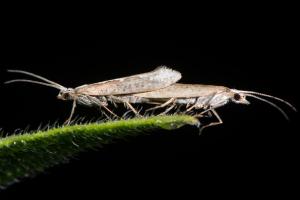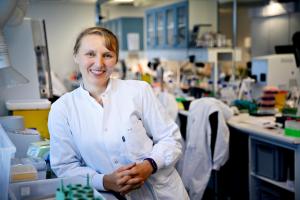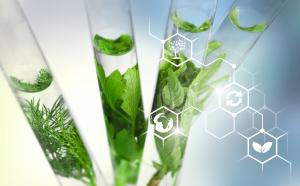Pests can now be controlled with natural pheromones

BioPhero uses renewable raw materials to produce pheromones that can control bugs in crops in a safe and environmentally friendly way by using mating disruption (photo by Ian Redding/Shutterstock.com)
BioPhero is the first company to produce natural pheromones sourced from renewable plant materials as a viable alternative to insecticides
“Sustainability is a guiding principle in everything we do – from the products we sell to the way we produce them. Our production process is almost exclusively reliant on renewable raw materials, and we are therefore proud to be the only company in the pheromone market with the certification to prove that our products are derived from biomass,” comments BioPhero Chief Executive Officer Kristian Ebbensgaard.
BioPhero produces insect pheromones that are used to control pests through mating disruption. Insects use these perfumes of the insect world to attract a mate. If a farmer distributes pheromones in a field, he masks the insects’ yoo-hoo-I’m-here perfume trail. As a result, the pests cannot find each other to mate, and no mating means no eggs and no plant-eating larvae.
The company’s technology platform is based on yeast fermentation. One yeast cell is like a tiny factory producing pheromone. Many cells together produce insect pheromones at an industrial scale – allowing BioPhero to lower the cost of pheromones to a level that competes with insecticides, making pheromones affordable to farmers of field crops.
“It has always been our ambition to make sustainable but affordable pest control solutions available to farmers. Agriculture plays a crucial role in protecting the environment, but farmers will find it hard to adopt greener solutions if they go out of business doing so,” says BioPhero Co-founder and Chief Scientific Officer Irina Borodina.
BioPhero's certification was carried out by Beta Analytic of the US, a leading laboratory in carbon-14 analysis. This type of analysis is used to determine the biobased content of a product – ranging from 0% in wholly synthetic products such as most plastics, medicines and pesticides to 100% in wholly natural products sourced from plants, animals or microbiological materials. BioPhero scored 99%, reflecting that the company feeds its yeast cells with renewable, plant-derived raw material, typically generated as a by-product of biodiesel production. The feed is then converted into pheromones by the yeast.
BioPhero is the first company in the pheromone market with this kind of biobased certification. Traditionally, insect pheromones have been produced by chemical synthesis.
BioPhero ApS was founded in 2016. It is based in Copenhagen, Denmark. In 2021, it raised $17m from agri/biotech heavyweights DCVC Bio, FMC Ventures, Syngenta Group Ventures and Novo Holdings. In addition, BioPhero has received EU support through the OLEFINE and PHERA projects.
Camilla Hebo Buus
BioPhero
+45 31 25 28 11
email us here
The magic of pheromones explained by BioPhero CEO Kristian Ebbensgaard
Legal Disclaimer:
EIN Presswire provides this news content "as is" without warranty of any kind. We do not accept any responsibility or liability for the accuracy, content, images, videos, licenses, completeness, legality, or reliability of the information contained in this article. If you have any complaints or copyright issues related to this article, kindly contact the author above.


